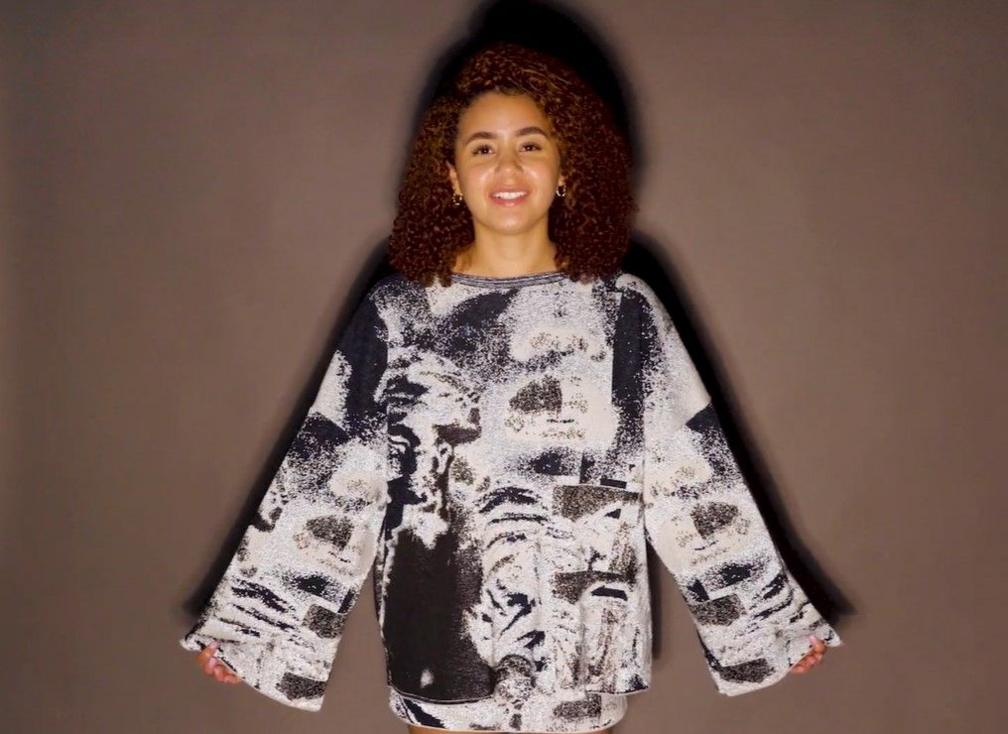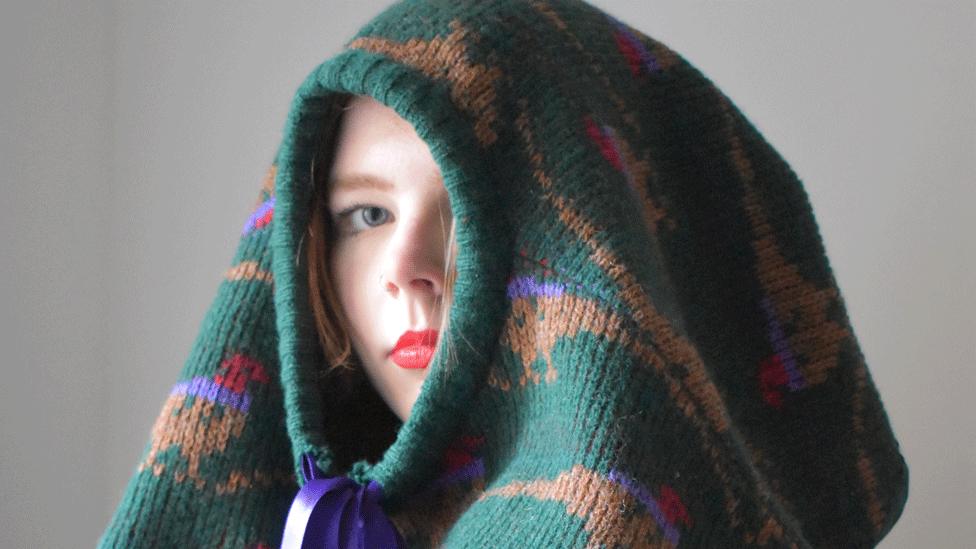Student-designed clothes combats AI privacy fear
Kirsty Love, from Bradeley, has designed clothing which can resist AI cameras
- Published
A student has created a clothing range which is designed to baffle artificial intelligence and protect its wearer’s identity.
Kirsty Love, 23, from Bradeley in Stoke-on-Trent, studies knitwear fashion at Nottingham Trent University.
She said she designed the garments after researching similar clothing technology which has been used to help celebrities avoid being caught in paparazzi photographs by returning the glare from their camera flashes.
Ms Love said she intended to pursue a career in fashion technologies in the future.
Her clothing range prevents artificial intelligence and digital profiling systems by using distorted images of bodies, faces and hands, she said.
The idea is that systems will struggle to distinguish the images on the garments from the physical features of the wearer.

Kirsty Love designed the clothing after being alarmed by websites that identify people using a photograph of their face
“It prevents it from digitally profiling the wearer and allows the wearer to have some anonymity when they’re wearing the garment,” she said, describing it as a kind of urban camouflage.
When viewed by human eyes the clothes just look like ordinary garments.
Ms Love said she was alarmed by the ability of websites that can identify people with a photograph of their face and instantly provide a range of other details about who they are.
She used reflective yarn and special patterning to create a prototype range that includes a skirt, jumper and hat.
She did not believe it was something people could use to avoid detection, she added.
"It’s different distorted images placed on top of one another. I’ve blurred them and changed the opacity."

Ms Love said the clothing would look like an ordinary garment if viewed without a camera
The designs have won her praise from leaders at her university.
Helen Hill, senior lecturer in fashion knitwear and knitted textiles, said: “Kirsty has shown how clothing can be designed to help protect a person’s anonymity while in a public place so that they can feel more secure in themselves and have better peace of mind.”
Ms Love said her target consumer is 20- to 35-year-olds who are conscious of their social media presence.
Follow BBC West Midlands on Facebook, external, X, external, and Instagram, external. Send your story ideas to: newsonline.westmidlands@bbc.co.uk, external
Related topics
Related stories
- Published4 July 2023

- Published8 September 2023

- Published1 January 2024
